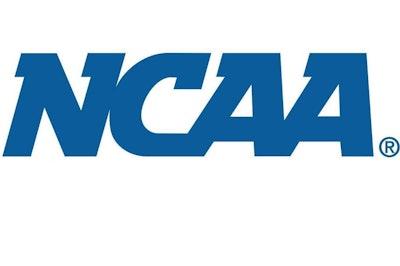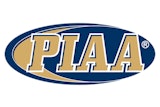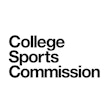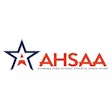
A men's basketball manager at Shaw University in Raleigh, N.C., arranged for the completion of coursework for six men's basketball student-athletes, resulting in those student-athletes competing while ineligible, according to an agreement released by the Division II Committee on Infractions. As a result of the misconduct, the men's basketball head coach violated head coach responsibility rules, and Shaw failed to monitor its men's basketball program. Additionally, five individuals violated ethical conduct rules when they did not meet their obligation to cooperate with the investigation.
Academic misconduct
The NCAA enforcement staff and university agreed that over the course of one academic year a manager engaged in academic misconduct when he arranged for a women's basketball student-athlete to complete assignments for six men's basketball student-athletes. As a result of the misconduct, the six student-athletes competed in 31 games and received actual and necessary expenses while ineligible.
The enforcement staff and university also agreed that one of the student-athletes — despite being declared ineligible by the school — was permitted to practice, compete in eight games and receive actual and necessary expenses before being reinstated by the NCAA student-athlete reinstatement staff.
Head coach responsibility
During the year that the academic misconduct violations occurred, the head coach had received permission from the university president and athletics director to spend time away from the program to deal with personal circumstances. As a result, he only attended games, and the associate head coach and assistant coach ran practice during portions of the year, at which point they were generally responsible for tracking student-athletes' academics. Despite his absence, there were no formal changes to the reporting structure within the program, and both the head coach and university agreed that the university expected the program and coaching staff to follow established policies and procedures for compliance.
As a result of the academic misconduct violations, the enforcement staff, university and head coach agreed that the head coach failed to meet the expected standards and did not promote an atmosphere of compliance because he did not establish clear expectations for complying with academic rules and university policies. He also did not demonstrate that he monitored his staff because the manager engaged with men's basketball academics without oversight.
Failure to monitor
Near the end of that same academic year, a student trainer reported potential misconduct to the compliance department. Shaw began an investigation into violations of NCAA rules and three separate and uncoordinated investigations related to NCAA, student and employee policies. The school attempted to arrange interviews with the involved student-athletes without success and failed to adequately collect sufficient information about the possible violations because of the lack of coordination in the investigations it conducted.
"With a campus where approximately one quarter of the student body is student-athletes, the (Committee on Infractions) is particularly troubled by the disconnect between the institution and some fundamental NCAA compliance-related principles," the committee said in its decision.
During the subsequent academic year, the university declared one men's basketball student-athlete ineligible and submitted a request for reinstatement of his eligibility through the NCAA student-athlete reinstatement staff. However, before receiving the staff's reinstatement decision, the student-athlete was allowed by the school to practice, compete and receive actual and necessary expenses.
The enforcement staff and university agreed that the school failed to monitor the men's basketball program, in large part, due to the school's insufficient response to a reported violation and the failure to withhold an ineligible student-athlete.
Unethical conduct
Over the course of the NCAA investigation, five individuals violated ethical conduct rules when they did not meet their obligation to cooperate with the investigation. For the head coach, associate head coach and assistant head coach, the violations occurred as a result of their untimely cooperation with the investigation. All three only agreed to participate after they were informed that the investigation had substantiated their involvement in the academic misconduct violations.
"Any lack of cooperation threatens the integrity of the infractions process," the committee said. "Their timely cooperation was critical to the NCAA investigation, as (the head coach, associate head coach and assistant coach) were individuals with pertinent knowledge of violations in the men's basketball program."
For the volunteer coach and manager, the violations occurred because they neither responded to the NCAA notice of allegations nor participated in the processing of the case.
"Furthering the objectives of the NCAA's infractions program is a fundamental obligation of current and former institutional staff members," the committee said. "An outright refusal to participate in the processing of a case is not acceptable."
This case was resolved through the summary disposition process, a cooperative effort where the involved parties agree on the violations that occurred and submit the case to the Division II Committee on Infractions in written form. All participating parties must agree to the facts of the case for this process to be used instead of a formal hearing. The committee proposed additional penalties, which were contested by the university, head coach and assistant coach, at which point the committee held an expedited penalty hearing. The associate head coach, volunteer coach and manager did not respond to their proposed penalties; therefore, they have no opportunity to appeal.
The committee prescribed the following penalties:
- Four years of probation.
- A $3,500 fine.
- A vacation of records of contests in which the student-athletes participated while ineligible.
- An audit of the university's athletics compliance program during the first and third years of the probationary period. The university shall have an independent, external agency or consultant experienced in NCAA compliance matters and investigations conduct the audits. The first audit should set forth a list of recommendations and establish a timeline for those recommendations to be implemented. The second audit will measure the university's progress toward meeting those recommendations.
- A requirement that the university provide a copy of the infractions decision to its regional accrediting agency.
- A three-year show-cause order for the head coach.
- A three-year show-cause order for the associate head coach.
- A three-year show-cause order for the assistant coach.
- A three-year show-cause order for the volunteer coach.
- A three-year show-cause order for the manager.
- A disassociation of the university from the head coach, associate head coach, assistant coach, volunteer coach and manager for five years, beginning July 13, 2022, and ending July 12, 2027. The university shall not accept any assistance from the individuals that would aid in the recruitment of prospective or enrolled student-athletes. The university also shall not provide any athletics benefit or privilege to these individuals that is not generally available to the public at large.
Members of the Committee on Infractions are drawn from NCAA member schools and conferences and members of the public. The committee members who reviewed this case are Jessica Chapin, athletics director at American International; David Hansburg, athletics director at Colorado School of Mines; John David Lackey, Division II Committee on Infractions chair and attorney in private practice; Richard Loosbrock, faculty athletics representative and history professor at Adams State; Melissa Reilly, senior woman administrator and associate commissioner at the East Coast Conference; Leslie Schuemann, senior woman administrator and deputy commissioner at the Great Midwest Athletic Conference; and Jason Sobolik, assistant athletics director for compliance and student services at Minnesota State University Moorhead.




































